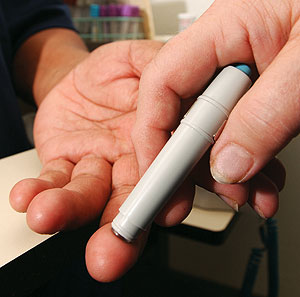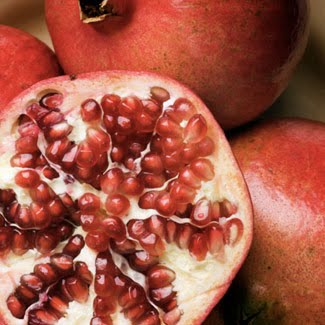
Diabetes drug kept breast tumors away in mice
Adding the common diabetes drug metformin to chemotherapy helped shrink breast cancer tumors faster in mice and keep them away longer than chemotherapy alone, raising hope for a more effective way to treat cancer, U.S. researchers said on Monday.
They said metformin appeared to target breast cancer stem cells — a kind of master cancer cell that resists conventional treatment and may be the source of many tumors that grow back.
“What’s exciting here is we now have something that is mechanistically a different kind of killer of cancer that can synergize with chemotherapy,” Kevin Struhl of Harvard Medical School, whose study appears in the journal Cancer Research, said in a telephone briefing.
Many teams have been looking for ways to destroy the master cancer cells in the hope of making cancer easier to cure.
Last month, a team at the Broad Institute of Harvard and the Massachusetts Institute of Technology reported that a chemical called salinomycin could kill breast cancer stem cells.
What is different with his study, Struhl said, is that metformin is a widely used drug with a long safety track record. “There are tens of millions of people who take this drug,” he said.
“Although our studies are limited to mice and cells, metformin has a history of anti-cancer effects,” he said.
Metformin has already been shown to reduce the risk of some cancers, including pancreatic and breast cancer, in large studies of people with diabetes.
Struhl said metformin’s affect on cancer stem cells appeared to be separate from its ability to help the body use insulin and lower blood sugar — which also can improve breast cancer survival.
His team studied metformin and the cancer drug doxorubicin in lab dishes and found they killed both human cancer stem cells and non-stem cancer cells.
Mice that had tumors and got metformin and chemotherapy were less likely to have tumors grow back two months after treatment compared with mice that got chemotherapy alone.
“When we had both drugs together, we lost the tumors faster, but more importantly, there was no relapse,” Struhl said.
He said with metformin, it may be possible to reduce the chemotherapy dose and still get the same benefit.
That will need to be studied in people and a study is getting under way. Dr. Jennifer Ligibel, at Dana-Farber Cancer Institute and Harvard, is organizing a large trial with colleagues in Canada to study metformin in women with early stage breast cancer.
Diabetes drug, Diabetes drug Health, Diabetes drug Health Latest, Diabetes drug Health Information, Diabetes drug Health information, Diabetes drugHealth Photo,Exercising for Weight Health photo, Diabetes drug Health Latest, Diabetes drugHealth latest, Exercising for Weight Health Story, Healthy Minnesota Health story, Diabetes drug Video, Diabetes drug video, Diabetes drug Health History, Diabetes drug Health history, Diabetes drugover Picture, history, Diabetes drug Asia, Healthy Minnesota asia, Diabetes drug Gallery, Exercising for Weight gallery, Diabetes drug Photo Gallery, Healthy Minnesota photo gallery, Diabetes drug Picture, Diabetes drug picture, Diabetes drug Web, Malaysia Health, web Health, web Health picture, video photo, video surgery, gallery, laparoscopy, virus, flu, drug, video, Health Health, calories, photo, nutrition, health video, symptoms, cancer, medical, beating, diet, physical, Training, organic, gym, blister, exercise, weightloss, surgery, spiritual, eating, tips, skin, operation, bf1




